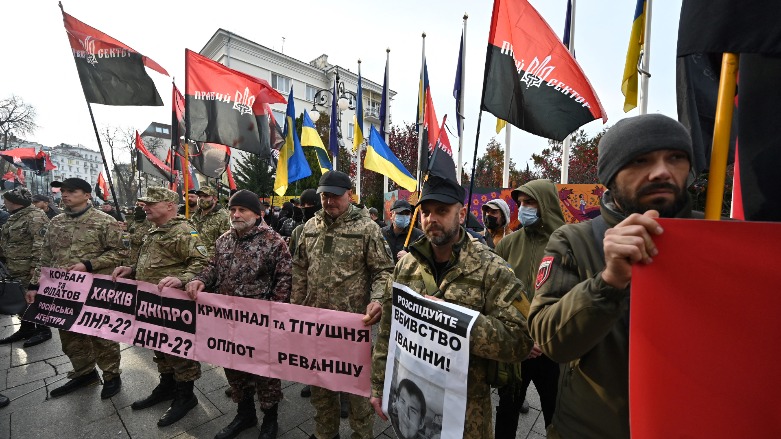US warns of possible Russian attack on Ukraine next week, as European diplomacy proves fruitless

WASHINGTON DC (Kurdistan 24) – US warnings about a possible Russian invasion of Ukraine had previously suggested that an assault could follow the end of the winter Olympics on Feb. 20.
The games are taking place in China, which has adopted a friendly posture toward Russia, and China will be unhappy to see the event that is hosting upstaged by a conflict in Europe.
However, on Friday, National Security Council Adviser Jake Sullivan warned that an attack could happen at any time, and Moscow would not necessarily wait for the Olympics to end.
In Australia, US Secretary of State Antony Blinken spoke similarly on Friday, explaining that there were “troubling signs of Russian escalation, including new forces arriving at the Ukrainian border.”
“US officials have picked up intelligence that Russia is considering Wednesday as the possible date for the start of military action, according to multiple officials briefed on the material,” The New York Times reported late on Friday.
Sullivan also warned US citizens still in Ukraine that they need to leave the country immediately: within the next 24-48 hours. He reiterated earlier calls from US authorities, including that made on Thursday by President Joe Biden, who told Americans that they should leave Ukraine “now.”
“It’s not like we’re dealing with a terrorist organization. We’re dealing with one of the largest armies in the world. It’s a very different situation, and things could go crazy quickly,” Biden told NBC News.
Biden emphasized that US troops would not be able to enter Ukraine to evacuate them, as that would mean “another world war.”
Fruitless European Diplomacy
Also on Friday, the British Defense Minister visited Moscow for talks with his counterpart, retracing the footsteps of the British Foreign Secretary, who had visited Moscow the day before. Both meetings were unproductive.
Nonetheless, German Chancellor Olaf Scholz will visit Russia and Ukraine next week. It is unclear why any one European leader believes that he can achieve what the last one failed to achieve.
Perhaps, they seek, rather, to develop a better understanding of Putin and his calculations, so as to enable their own decision-making.
Biden and Putin are scheduled to speak later today. But it seems unlikely that their conversation will reach a conclusion that differs in any significant way from the multiple rounds of failed diplomacy that already have been held.
No NATO Threat to Russia—Problem is Putin’s Internal Politics
Among the puzzling aspects of the Ukraine crisis is why Putin keeps insisting that NATO poses a threat to his country.
“None of the fears” Moscow is touting “have any foundation in reality,” Carl Bildt, a former Swedish Prime Minister, wrote in late January, suggesting that Putin’s posture toward Ukraine was “insane.”
Read More: US deploying new troops to Europe, amid sharpened Russian tensions
However, David Tafuri, an international lawyer who served in Iraq as the State Department’s Rule of Law Coordinator at the height of the US-led war there, writing Thursday in “The Hill,” a newspaper oriented toward Congressional politics, provided a quite credible explanation: Putin fears democracy.
“NATO has never posed a real threat to Putin’s supremacy inside Russia,” Tafuri stated. “But a well-functioning democracy on Russia’s border, which could inspire new democratic movements within Russia, would.”
It is difficult to imagine a war in Europe, after nearly 80 years of peace—since 1945, when World War II ended. Yet Putin has many options short of a full-scale war.
Britain’s Guardian newspaper, on Friday, described one such scenario. The “prevailing belief,” it said, was that any Russian intervention “would be designed to achieve regime change in Kiev.”
“That could see a lightning attack, aimed at encircling the capital, with the intention of forcing the collapse of Volodymyr Zelensky’s government, and trying to install a pro-Russian regime without urban warfare,” The Guardian explained.
Other scenarios are, of course, possible, and it remains the US position—despite all the warnings it has issued—that Putin has yet to make a final decision on what he will do.
